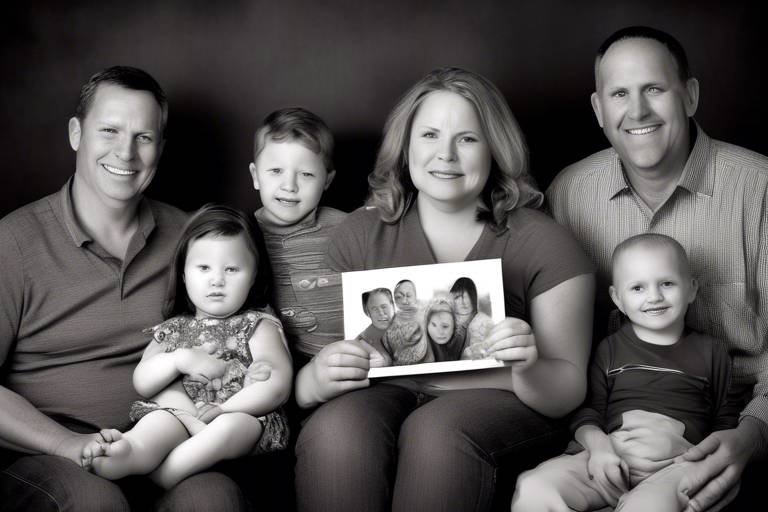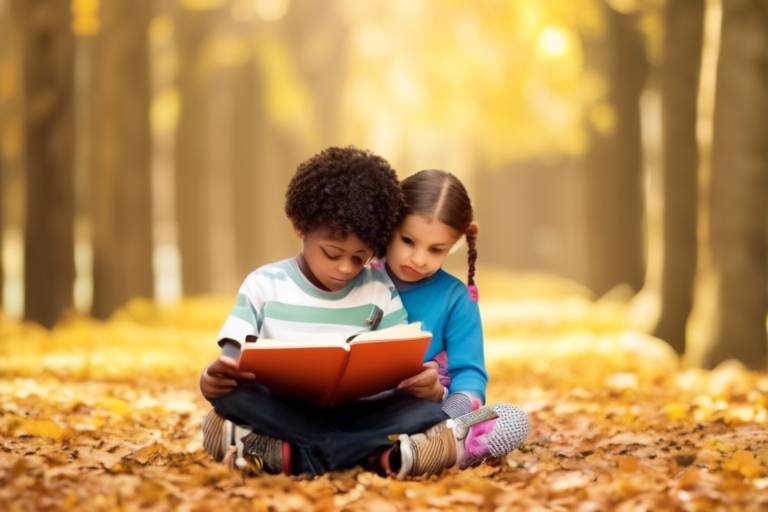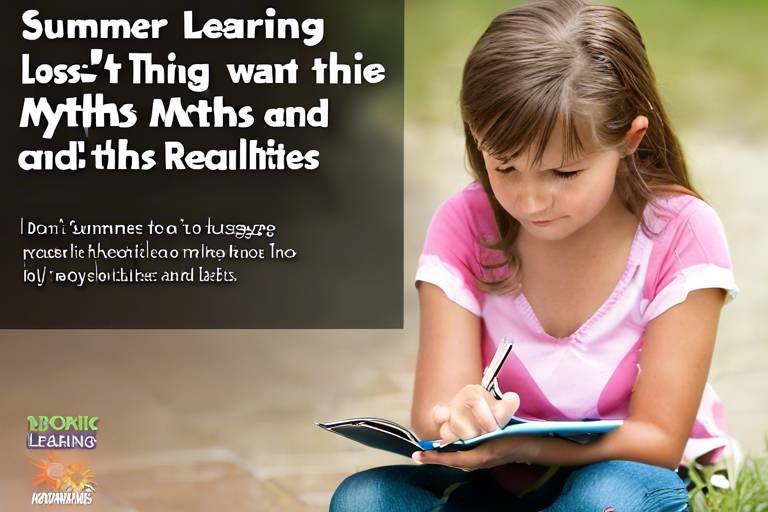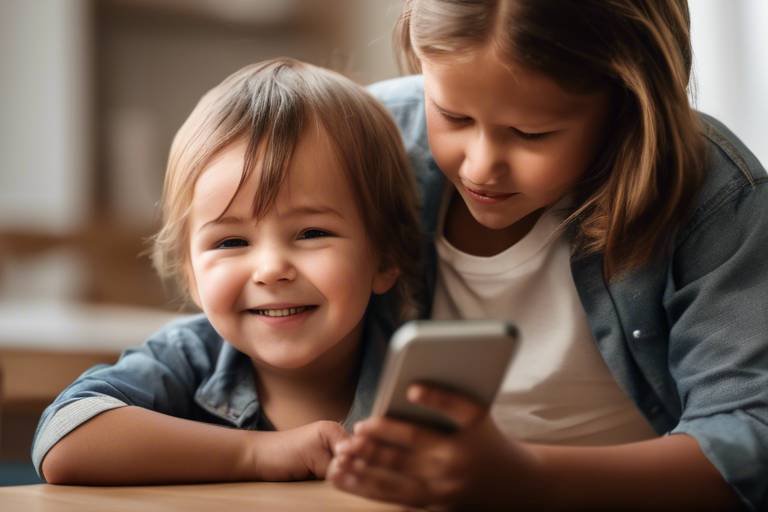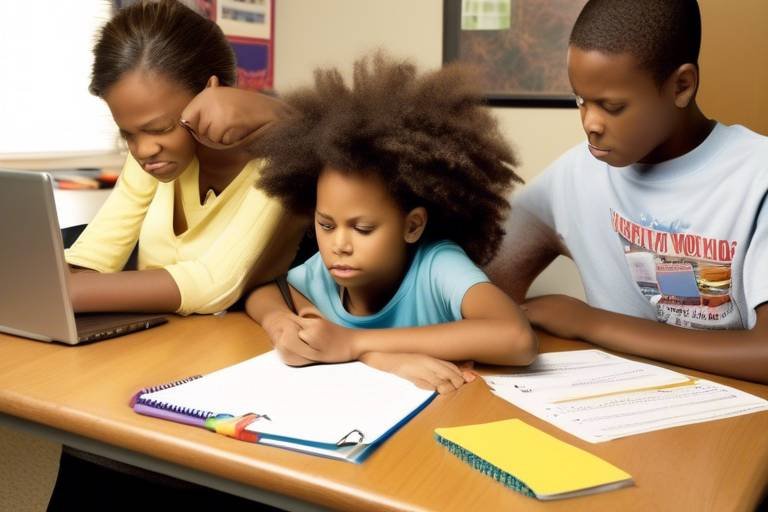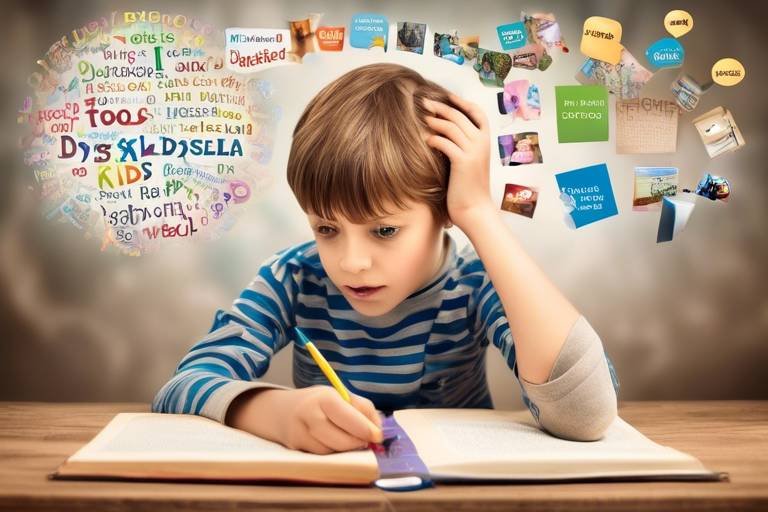Viewing Family Through the Eyes of an Adopted Child
When we think about family, we often picture a traditional setup—parents, siblings, and perhaps a pet or two. However, for an adopted child, the concept of family can be a vibrant tapestry woven with unique threads of experience, emotion, and identity. These children often view family through a lens colored by their personal journeys, filled with questions, hopes, and sometimes, a sense of longing. It’s essential to understand that their experiences are not just about being part of a family; they are about navigating a complex emotional landscape that shapes their understanding of love, belonging, and identity.
Imagine being a child who has been moved from one home to another, carrying with you the weight of unanswered questions. What does it mean to belong? How do I fit into this new family? These are not just abstract thoughts; they are the daily musings of many adopted children. They often grapple with feelings of being different, of not fully understanding their place in the world. This emotional journey can be akin to trying to solve a puzzle where some pieces are missing, leaving them to wonder if they will ever find the right fit.
For many adopted children, their family dynamics can feel like a double-edged sword. On one hand, they are grateful for the love and support from their adoptive families; on the other hand, they may feel a tug towards their biological roots. This duality can create a rich, albeit complicated, emotional landscape that parents and families must navigate with sensitivity and care. Understanding these feelings is crucial for creating an environment where adopted children can thrive, feel secure, and express their identities freely.
As families come together, it's important to foster an atmosphere of openness. Encouraging children to share their thoughts and feelings about their adoption can be incredibly beneficial. It’s like planting seeds of conversation that can blossom into deeper understanding and connection. When children feel safe to express their emotions, it not only strengthens family bonds but also helps them process their feelings in a healthy way.
In essence, viewing family through the eyes of an adopted child is about recognizing the richness of their experiences. It requires a blend of empathy, patience, and open dialogue. By embracing their unique perspectives, families can create a nurturing environment that honors their journeys while allowing them to flourish as individuals. Ultimately, it's about weaving together the diverse strands of identity, love, and belonging to form a cohesive family unit that celebrates all its members.
- How can I support my adopted child in understanding their identity?
Encourage open conversations about their feelings and experiences. Provide resources like books or support groups focused on adoption. - What should I do if my child wants to connect with their birth family?
Respect their feelings and facilitate a safe way for them to explore this connection, if appropriate. - Are there specific challenges adopted children face in school?
Yes, they may struggle with issues related to self-esteem or belonging, so it’s important to work closely with teachers and counselors.

The Emotional Landscape of Adoption
Adoption is a journey filled with a myriad of emotions, both for the child and the families involved. For adopted children, the emotional landscape can often resemble a complex tapestry woven with threads of joy, confusion, love, and longing. These children might experience feelings of abandonment or loss, even in the most loving homes. It's essential to recognize that these emotions are not only valid but also a natural part of their experience. Understanding this emotional complexity can empower families to provide the necessary support that fosters healthy emotional development.
Many adopted children grapple with questions that can feel overwhelming at times. They may wonder about their birth parents, their origins, and why they were placed for adoption. These questions can lead to feelings of insecurity and a sense of being different from their peers. In fact, research indicates that adopted children might experience heightened emotional sensitivity, making it crucial for families to approach these feelings with empathy and understanding.
One way to navigate these emotional waters is through open communication. Encouraging children to express their feelings about adoption can create a safe space for them to explore their emotions. Parents can initiate conversations by asking gentle questions like, “What are your thoughts about your adoption story?” or “How do you feel when you think about your birth family?” Such dialogues can help children articulate their feelings and foster a sense of belonging within the adoptive family.
Moreover, it's important for families to recognize that the emotional landscape of adoption isn't static; it evolves over time. Children may feel differently about their adoption at various stages of their lives. For instance, a young child might view adoption as a fairy tale, while a teenager may wrestle with feelings of identity and belonging. Thus, ongoing support and reassurance are vital in helping them navigate these changing emotions.
In addition to emotional support from families, external resources can also play a significant role. Support groups specifically for adopted children can provide a sense of community, where they can share experiences and feelings with peers who understand their unique challenges. These connections can be incredibly validating and help ease feelings of isolation.
Ultimately, the emotional landscape of adoption is rich and varied. By fostering open communication, providing emotional support, and connecting with external resources, families can help adopted children navigate their feelings and build a strong foundation of love and acceptance. Remember, it’s not just about addressing the challenges; it’s also about celebrating the joys of being part of a family, regardless of how that family is formed.
- What are common emotions experienced by adopted children? Adopted children may experience a range of emotions including joy, confusion, sadness, and a sense of loss.
- How can parents support their adopted children emotionally? Open communication, understanding, and access to support groups can help parents provide the necessary emotional support.
- Is it normal for adopted children to have questions about their birth families? Yes, it is completely normal for adopted children to have questions about their birth families and origins.
- How can support groups benefit adopted children? Support groups can provide a sense of community and validation, allowing adopted children to share their experiences with others who understand their journey.

The Role of Identity in Adoption
When we think about identity, it often feels like a puzzle, with each piece representing different aspects of who we are. For adopted children, this puzzle can be even more intricate. They grow up navigating the delicate balance between their biological roots and the family culture they are raised in. This duality can lead to profound questions about belonging and self-perception. How do they fit into their adoptive families while also honoring their biological heritage? This is a journey that many adopted children embark on, often leading to a rich tapestry of experiences that shape their understanding of self.
At the heart of this exploration lies the concept of cultural identity. Many adopted children come from diverse backgrounds, and acknowledging this can be crucial for their emotional well-being. When families embrace and celebrate their child's cultural heritage, it can foster a sense of pride and belonging. For instance, if a child is adopted from a different country, incorporating traditions, language, and cuisine from that culture into family life can help the child feel more connected to their roots.
Moreover, the search for identity can often lead to a desire for connection with birth families. Many adopted children grapple with questions like, "Who do I look like?" or "What traits did I inherit from my biological parents?" These questions are not just about physical appearance; they delve deeper into the emotional and psychological aspects of identity. The yearning for answers can sometimes feel overwhelming, but it is a natural part of their journey. It’s essential for adoptive families to recognize these feelings and create an environment where children feel safe to express their curiosity.
Creating open dialogues about adoption and identity within the family is crucial. When parents encourage their children to share their thoughts and feelings, it helps to demystify the adoption process and allows for a more authentic connection. For instance, parents can share their own feelings about the adoption journey, which can help children feel less isolated in their experiences. This two-way communication not only strengthens family bonds but also empowers adopted children to embrace their unique identity.
In addition, it’s important to understand that identity is not static; it evolves over time. As adopted children grow, their understanding of who they are may shift. They may explore their biological heritage in different ways, whether through connecting with birth families, learning about their cultural history, or simply reflecting on their personal experiences. This fluidity can be both exciting and daunting. Parents can support their children by being open to these changes and encouraging them to explore their identity in a safe and loving environment.
Ultimately, the role of identity in adoption is multifaceted and deeply personal. Each adopted child will have a unique journey shaped by their experiences, emotions, and the support they receive from their families. By fostering an environment that celebrates both their adoptive and biological backgrounds, families can help children navigate their identity with confidence and pride.
- How can adoptive parents support their child's identity exploration?
Encouraging open discussions, celebrating cultural heritage, and facilitating connections with birth families can greatly support identity exploration. - What should I do if my adopted child wants to learn more about their birth family?
It’s essential to approach this topic with sensitivity. Offer support, listen to their feelings, and consider seeking professional guidance if needed. - Can identity struggles affect an adopted child's emotional health?
Yes, identity struggles can lead to feelings of confusion or isolation. Providing a supportive environment can help mitigate these feelings.

When we talk about cultural heritage in the context of adoption, we are diving deep into the rich tapestry of identity that shapes who a child is. For many adopted children, their cultural roots are like pieces of a puzzle that, when put together, reveal a fuller picture of their identity. It's not just about where they came from; it’s about understanding the traditions, languages, and values that have been passed down through generations. Imagine trying to build a house without knowing what materials your foundation is made of—this is similar to how adopted children may feel when they lack knowledge of their cultural background.
Recognizing and honoring an adopted child's cultural heritage can significantly enhance their sense of belonging and self-worth. It’s essential for adoptive families to embrace these backgrounds, even if they differ from their own. This can be done in various ways:
- Celebrating Cultural Holidays: Integrating celebrations from the child's birth culture into family traditions can create a sense of continuity and connection.
- Learning the Language: If the child’s birth culture has a different language, learning even a few words can be a powerful gesture of love and acceptance.
- Exploring Cultural Foods: Cooking traditional meals together can be a fun way to explore and celebrate heritage.
Additionally, understanding the nuances of cultural identity can help adopted children navigate their feelings of belonging. They may experience a blend of emotions that range from pride in their heritage to confusion about their place in their adoptive family. This duality can sometimes feel like walking a tightrope—balancing between two worlds. Adoptive parents can play a crucial role in this journey by fostering an environment that encourages exploration and discussion about cultural identity.
It’s also important to acknowledge that not all adopted children have the same experience with their cultural heritage. Some may have a strong desire to connect with their roots, while others may feel more aligned with their adoptive culture. This diversity in experience highlights the need for open communication. By creating a safe space for discussions about culture, families can help children articulate their feelings and questions, which is vital for emotional growth.
Ultimately, embracing a child's cultural heritage is not just about acknowledging their past; it’s about empowering them to build a future where they feel whole and accepted. The journey of understanding one’s identity is ongoing, and it can be a beautiful collaboration between the adopted child and their family. By weaving together the threads of both cultures, families can create a vibrant and inclusive environment that celebrates diversity and fosters unity.
- How can I help my adopted child connect with their cultural heritage?
Encourage exploration through cultural events, foods, and traditions. Open discussions about their background can also help. - What if my child shows little interest in their birth culture?
It's normal for some children to feel more connected to their adoptive culture. Allow them to explore at their own pace without pressure. - Are there resources available to help adoptive families understand cultural heritage?
Yes, many organizations offer workshops, literature, and community events focused on cultural awareness for adoptive families.

For many adopted children, the desire to connect with their birth families is not just a fleeting thought; it’s a deep-rooted longing that resonates within them. This connection can offer a sense of completeness and understanding of their origins, which is essential for their emotional well-being. Imagine being a puzzle piece that has been placed in a different box; while you may fit perfectly, there’s always that nagging feeling of wanting to know where you truly belong. This is how many adopted children feel when they think about their birth families.
The journey to connect with birth families can be both exciting and daunting. Children may have questions swirling in their minds, such as: Who do I look like?, What were my parents like?, or Why was I placed for adoption? These questions are not just about curiosity; they are fundamental to their identity. When adopted children are given the opportunity to explore these connections, it can lead to profound emotional healing and a stronger sense of self.
However, the process is not always straightforward. Many factors can influence the ability to connect with birth families, including legal restrictions, emotional readiness, and the willingness of birth parents to engage. It’s essential for adoptive families to approach this topic with sensitivity and understanding. Open discussions about the possibility of connecting with birth families can help children feel supported and validated in their feelings.
Here are some ways adoptive families can facilitate this connection:
- Encourage Open Conversations: Regularly talk about the child's adoption story and their feelings regarding it. This creates a safe space for them to express their thoughts.
- Provide Resources: Share books, articles, or documentaries about adoption that include stories of others who have connected with their birth families.
- Consider Professional Guidance: Engaging a counselor who specializes in adoption can help navigate the emotional complexities involved.
Ultimately, the connection with birth families can be a significant part of an adopted child's journey toward understanding their identity. It’s a path filled with potential for growth, healing, and deeper familial bonds. Just like a tree that grows stronger when its roots are nourished, adopted children can flourish when they have the opportunity to explore their origins.
- How can I help my adopted child feel comfortable discussing their birth family? - Start by normalizing conversations about adoption and providing a safe space for them to express their feelings.
- What if my child is not interested in connecting with their birth family? - Respect their feelings and let them know that it’s okay to take their time. Their feelings may change as they grow older.
- Are there resources available for finding birth families? - Yes, there are many organizations and online platforms dedicated to helping adopted individuals connect with their birth families.

Creating open dialogues about adoption is not just beneficial; it's essential for fostering a trusting and nurturing environment for adopted children. Imagine this: a child who feels like they are holding a puzzle piece that doesn't quite fit into their family's picture. By encouraging conversations about their adoption journey, parents can help these children find that missing piece, allowing them to see how they fit into the larger family narrative.
Open dialogues create a safe space where children can express their thoughts, feelings, and questions about their identity and origins. This communication is vital because it helps children process their emotions and understand their unique experiences. When families talk openly about adoption, they demystify the topic, making it less intimidating and more approachable for the child. This can lead to a deeper understanding of their feelings and a stronger bond with their adoptive family.
Here are a few strategies to foster these open dialogues:
- Start Early: Begin discussions about adoption at a young age. This sets the stage for ongoing conversations as the child grows.
- Be Honest and Age-Appropriate: Tailor your discussions to your child's age and understanding. Honesty is crucial, but the information should be digestible.
- Encourage Questions: Let your child know that it's okay to ask anything, no matter how uncomfortable it might seem. This openness encourages curiosity and trust.
- Share Your Own Feelings: Don't shy away from expressing your emotions about adoption. Sharing your feelings can help your child feel validated in their own emotions.
- Utilize Books and Resources: There are many children's books about adoption that can serve as conversation starters. These resources can help illustrate complex feelings in relatable ways.
Moreover, creating a routine for these conversations can be beneficial. For instance, setting aside time during family meals or before bedtime can normalize discussions about adoption. This consistency not only reinforces the importance of these dialogues but also makes it easier for children to bring up their thoughts whenever they arise.
In addition to fostering open dialogues at home, parents should also be open to seeking external support, such as counseling or support groups focused on adoption. These resources can provide valuable insights and strategies for navigating conversations and addressing any challenges that arise.
Ultimately, the goal of creating open dialogues is to cultivate a sense of belonging and acceptance within the family. By doing so, parents can help their adopted children navigate their unique journeys with confidence and love, ensuring they feel secure in their identities.
| Question | Answer |
|---|---|
| How can I start a conversation about adoption with my child? | Begin by sharing age-appropriate stories about their adoption and encourage questions. Use books or resources to facilitate the discussion. |
| What if my child doesn't want to talk about their adoption? | Respect their feelings. Let them know you're available to talk whenever they're ready, and reassure them that their feelings are valid. |
| Are there support groups for adoptive families? | Yes, many organizations offer support groups for adoptive families, providing a space to connect with others who share similar experiences. |

When it comes to navigating family dynamics, adopted children often find themselves in a unique position. They may view their family structure through a different lens, shaped by their experiences and emotions. For instance, the concept of a "family" might not just be about the people they live with, but also include a complex web of relationships that spans both their adoptive and biological families. This multifaceted perception can lead to a rich, albeit sometimes confusing, understanding of what family means.
Adopted children might wrestle with feelings of belonging and identity, particularly when they notice differences between themselves and their adoptive siblings. Understanding these dynamics is crucial for families looking to support their adopted children. Parents can play a pivotal role by creating an environment where feelings of insecurity or displacement are addressed openly. For example, when a child expresses feelings of being different, rather than dismissing those feelings, parents can acknowledge them and engage in a conversation about what family means to each member.
Moreover, the dynamics within an adoptive family can be influenced by external factors, such as societal perceptions of adoption. Children may encounter questions or comments from peers that can lead to feelings of being "othered." This is where the role of the family becomes even more vital. By fostering a culture of acceptance and understanding, parents can help their children navigate these challenges. Here are a few strategies:
- Encourage Open Communication: Create a safe space for children to express their thoughts and feelings about their adoption and family dynamics.
- Normalize Differences: Help children understand that every family is unique, and differences can be a source of strength and richness.
- Celebrate Diversity: Incorporate discussions about cultural heritage and the beauty of diversity within the family.
Additionally, it’s essential for parents to recognize that their adopted child may have a strong desire to understand their roots. This can lead to feelings of loyalty or conflict, especially if they feel torn between their adoptive family and their biological family. Addressing these feelings with sensitivity and empathy can create a stronger bond within the family unit. By discussing the importance of both sides of their family tree, parents can help their children feel more integrated and accepted.
In conclusion, navigating family dynamics as an adopted child is a journey filled with complexities. By fostering an environment of open dialogue, acceptance, and understanding, families can help their adopted children thrive emotionally and socially, ultimately strengthening the familial bond. Remember, it's not just about the family you are born into, but the family you create and nurture over time.
- What should I do if my adopted child feels different from other family members?
Encourage open discussions about feelings and experiences, and reassure them that all families are unique. - How can I help my adopted child connect with their cultural heritage?
Incorporate traditions, stories, and celebrations from their culture into family life. - What resources are available for adoptive families?
Look for local support groups, counseling services, and online communities focused on adoption.

When it comes to adoption, one of the most crucial aspects that can help adopted children thrive is a solid support system. This network can include family, friends, educators, and professionals who understand the unique challenges that come with adoption. Imagine being on a journey where the path is often unclear; having a support system is like having a reliable map that guides you through the twists and turns. It's essential not only for emotional well-being but also for fostering a sense of belonging and identity.
Adopted children may face various challenges that require specific support. These can range from emotional struggles, such as feelings of abandonment or confusion about their identity, to practical issues like navigating school environments. To address these challenges, it’s vital for families to identify and utilize available resources. Here are some key components of effective support systems:
- Counseling Services: Professional counseling can provide a safe space for adopted children to express their feelings. Therapists who specialize in adoption can help them work through complex emotions and develop coping strategies.
- Support Groups: Joining support groups can connect adopted children and their families with others who share similar experiences. This community can offer valuable insights and encouragement, making them feel less isolated.
- Educational Resources: Schools can play a significant role in supporting adopted children. Educators trained in adoption issues can help create an inclusive environment that recognizes and respects the unique backgrounds of these children.
Moreover, it's essential for families to foster an atmosphere of open communication. Encouraging adopted children to share their feelings and experiences can significantly enhance their emotional health. This dialogue not only helps children articulate their thoughts but also strengthens family bonds. When children feel heard and understood, they are more likely to develop a positive self-image and a healthy sense of belonging.
In addition to these resources, parents and guardians should also consider engaging with adoption organizations that provide workshops and seminars. These programs can equip families with the knowledge and tools they need to navigate the complexities of adoption. Furthermore, many organizations offer literature and online resources that can be beneficial for both parents and children.
Ultimately, the goal of these support systems is to ensure that adopted children feel valued, understood, and connected. Just like a sturdy bridge that connects two shores, a strong support system can help them traverse the often turbulent waters of identity and belonging. By actively seeking out and utilizing these resources, families can create a nurturing environment that promotes healthy emotional development and a sense of security for their adopted children.
- What are the signs that an adopted child may need additional support? Common signs include withdrawal from family activities, difficulty in forming friendships, or expressing feelings of sadness and confusion about their adoption.
- How can I find a counselor who specializes in adoption? You can start by asking your pediatrician for recommendations or searching online directories that list therapists by specialty.
- Are there online resources for adoptive families? Yes! Many organizations provide extensive resources, including articles, forums, and webinars tailored for adoptive families.

When it comes to forming friendships, adopted children often walk a unique path. Imagine navigating a maze where some paths are familiar, while others are shrouded in mystery. For many adopted kids, the intricacies of peer relationships can feel just like that—exciting yet daunting. They may grapple with feelings of difference and belonging, which can influence how they interact with their peers. Have you ever felt like an outsider in a group? Adopted children might experience that feeling more intensely, especially if their background or story is different from their friends.
One of the most significant challenges adopted children face is the fear of rejection. This fear isn’t just about being left out of games or social events; it can stem from deeper concerns about their identity and how others perceive them. They might wonder, "Will my friends understand my story?" or "What if they judge me because I'm adopted?" These questions can create barriers to forming meaningful connections. However, with the right support, these barriers can be dismantled.
Encouraging open communication is vital. Parents can help by discussing the concept of adoption openly, allowing children to express their feelings and experiences. For instance, when a child shares a story about feeling different, parents can respond with empathy and understanding, reinforcing that it's okay to feel that way. This dialogue can pave the way for children to feel more confident in sharing their adoption story with peers. Moreover, by fostering an environment of acceptance and curiosity, parents can help their children build friendships based on mutual respect and understanding.
Additionally, peer relationships can be enriched through shared experiences. For example, participating in activities that celebrate diversity, such as cultural festivals or adoption awareness events, can provide common ground for adopted children and their peers. These experiences not only enhance their social skills but also cultivate a sense of pride in their identity. When children feel proud of who they are, they radiate confidence, making it easier to connect with others.
Moreover, support groups specifically designed for adopted children can play a crucial role in their social development. These groups provide a safe space for children to meet others with similar experiences, allowing them to share, bond, and learn from one another. Here, they can discuss their feelings about adoption, their relationships with peers, and any challenges they face. This sense of community can be incredibly empowering, as it helps them understand they are not alone in their journey.
In conclusion, while navigating peer relationships can be challenging for adopted children, it is essential to remember that with the right support and understanding, these challenges can transform into opportunities for growth and connection. By fostering open dialogues, encouraging participation in diverse activities, and connecting with supportive communities, we can help adopted children build strong, meaningful friendships that enrich their lives.
- How can I help my adopted child make friends?
Encourage open conversations about their feelings and support them in participating in group activities that celebrate diversity. - What should I tell my child's friends about adoption?
Be honest and straightforward. Share your child's adoption story in a way that is age-appropriate and emphasizes love and belonging. - Are there specific support groups for adopted children?
Yes, many communities offer support groups that provide a safe space for adopted children to connect and share their experiences.

Education is a vital part of any child's development, yet for adopted children, it can present a unique set of challenges and triumphs. Many adopted children come from diverse backgrounds and may have experienced disruptions in their early educational experiences. This can lead to gaps in learning or difficulties in adjusting to new educational environments. Imagine walking into a classroom where everything feels foreign, and you’re not just learning math or science; you’re also trying to find your place in a world that sometimes feels like it doesn’t quite fit.
One of the primary challenges adopted children may face is the emotional baggage from their past experiences. For instance, feelings of loss, abandonment, or a desire to connect with their biological roots can impact their focus and motivation in school. It's crucial for parents and educators to recognize these emotional hurdles. They can create a nurturing environment that not only addresses academic needs but also supports emotional well-being. This dual approach can help children thrive both in and out of the classroom.
Moreover, adopted children might also encounter varying learning styles and educational needs. Some may have been exposed to different teaching methods prior to their adoption, which can lead to confusion or frustration in traditional classroom settings. For example, a child who thrived in a play-based learning environment might struggle in a more structured, lecture-based setting. Therefore, it’s essential for educators to adopt a flexible teaching style that accommodates the diverse needs of all students.
To better understand these challenges, let’s take a look at some common educational hurdles faced by adopted children:
- Academic Gaps: Many adopted children may need additional support in specific subjects due to inconsistent educational backgrounds.
- Social Integration: The transition into new social circles can be daunting, often leading to feelings of isolation or anxiety.
- Behavioral Issues: Past trauma can manifest as behavioral challenges in school, affecting their ability to engage with peers and teachers.
On the flip side, the triumphs of adopted children in education can be equally inspiring. Many adopted children demonstrate incredible resilience. With the right support, they can overcome obstacles and excel academically. Their unique backgrounds often contribute to a rich perspective that enhances classroom discussions and collaborative projects. In fact, studies have shown that children who have faced adversity often develop strong problem-solving skills and emotional intelligence, which can be advantageous in their educational journeys.
Furthermore, the love and support from adoptive families can play a significant role in fostering a positive educational experience. When families prioritize education and encourage their children to pursue their interests, it can lead to remarkable achievements. For instance, many adopted children go on to excel in extracurricular activities, such as sports, arts, or academics, showcasing their diverse talents and passions.
In summary, while adopted children may face distinct educational challenges, they also have the potential for extraordinary triumphs. By fostering a supportive and understanding environment, parents and educators can help these children navigate their educational paths successfully. After all, education is not just about textbooks and tests; it’s about nurturing a child's spirit and helping them discover their unique place in the world.
- What are some signs that an adopted child is struggling in school? Look for signs of frustration, withdrawal, or a sudden drop in academic performance. Emotional issues may also manifest as behavioral problems.
- How can I support my adopted child academically? Engage with their teachers, provide a structured study environment at home, and encourage open discussions about their feelings related to school.
- Are there specific resources available for adopted children facing educational challenges? Yes, many organizations offer support groups, tutoring, and counseling tailored to the needs of adopted children.
Frequently Asked Questions
- What emotions do adopted children commonly experience?
Adopted children often navigate a whirlwind of emotions, including feelings of loss, confusion, and even joy. They might grapple with questions of identity and belonging, which can lead to a complex emotional landscape. It's essential for families to recognize these feelings and provide a supportive environment where children can express themselves openly.
- How does identity play a role in the lives of adopted children?
Identity is a cornerstone of an adopted child's experience. Many adopted children may feel torn between their biological roots and their adoptive families. Understanding their unique identity can help them forge connections with both sides of their heritage, making it crucial for families to foster discussions about their child's background and experiences.
- Why is cultural heritage important for adopted children?
Cultural heritage helps shape an adopted child's sense of self. Recognizing and celebrating their cultural background can enhance their feelings of belonging and self-worth. Families are encouraged to explore and honor these heritages, creating a richer, more inclusive family dynamic.
- How can adopted children connect with their birth families?
Connecting with birth families can provide adopted children with a sense of completeness and understanding of their origins. This desire often stems from a need to know where they come from. Families can support this journey by encouraging open conversations and, when appropriate, facilitating contact with birth families.
- What are effective ways to foster open dialogues about adoption?
Encouraging open conversations about adoption is key to helping children express their feelings and curiosities. Families can initiate these dialogues by asking questions, sharing their own thoughts, and creating a safe space for discussions. This approach not only strengthens family bonds but also builds trust.
- How do adopted children perceive family dynamics?
Adopted children may view family dynamics through a different lens, often influenced by their unique experiences. Understanding these perspectives allows families to create a supportive environment that acknowledges and validates their feelings, ultimately fostering healthier relationships within the family unit.
- What support systems are available for adopted children?
Support systems are vital for the well-being of adopted children. Resources such as counseling, support groups, and community programs can empower families to navigate challenges together. Identifying these resources early on can make a significant difference in a child's emotional and social development.
- What challenges do adopted children face in forming peer relationships?
Adopted children might encounter unique hurdles when building friendships, often stemming from feelings of difference or insecurity. Parents can help guide their children through these social experiences by encouraging open communication and teaching them skills to foster meaningful connections with peers.
- Are there specific educational challenges that adopted children might face?
Yes, adopted children may face particular educational challenges, such as difficulties in adjusting to new environments or learning styles. Recognizing these obstacles allows parents and educators to provide tailored support that caters to the child's individual needs, setting them up for academic success.



